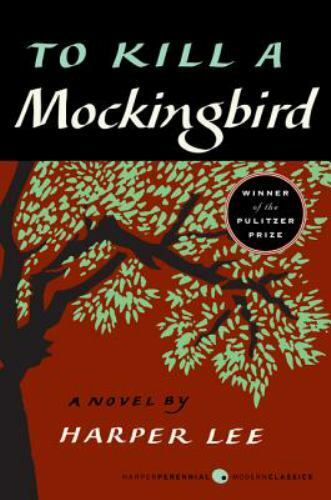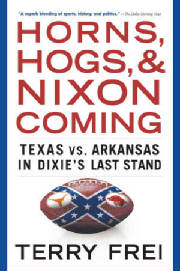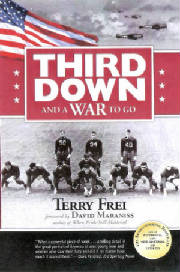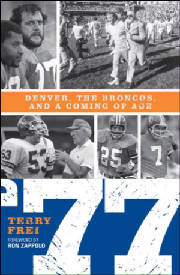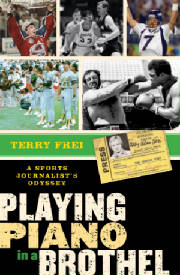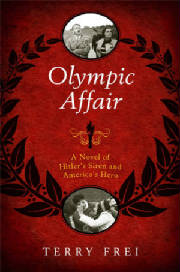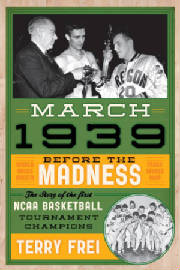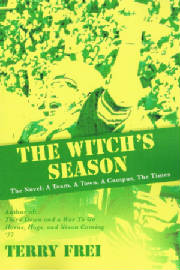| |
February 2, 2023
Harper Lee's 1960 novel.
As "To Kill a Mockingbird" was
in the final days of its two-week run in Denver before moving on to Omaha and beyond, I took in the Wednesday night performance
at the Buell Theater.
Before
the national company hit the road, the Broadway production -- with a brilliant script by Aaron Sorkin -- ran for 37 months,
spanning the pandemic. Jeff Daniels, Ed Harris and Greg Kinnear took stints in the iconic role of small-town lawyer Atticus
Finch.
Richard Thomas,
best-known as John-Boy on "The Waltons," has been Atticus on this tour since March, and it's difficult to imagine
any of his New York predecessors surpassing his moving performance. (He might get tired of the reflexive "best-known
as John-Boy," but there are worse things to be "best- known as.") In particular, a lengthy second-act rant
lamenting that we can't go on like this especially renonates both because of Thomas' eloquence and its striking of a contemporary
chord. I daresay there were some tears in the audience at that point -- and at others during the nearly three hours. The box-office reality is that national tours,
including those shows in the DCPA's Broadway series, predominantly are musicals, a mix of Equity and non-Equity tours. Regardless,
they're the fail-safe mechanism for sending audiences smiling and humming into the night. That's why "Wicked" soon will make its 23rd run through Denver.
Plays, whether dramas or comedies, don't necessarily "require"
star casting to be terrific shows, but that provides a box-office safety net, whether in New York or on the road. There are
thousands of veteran, journeymen actors -- maybe even several in the resident DCPA Theater Company -- who could effectively
play the Atticus role. They would not be the drawing card needed, even if the show is included in a season ticket package,
as "Mockingbird" was. The worst is when the "star casting" is to the detriment of the show itself. That's
certainly not the case here. The slight risk-taking of slotting in this tour was a wise move and a change of pace for the
Denver "Broadway" tours constituency. Any discussion of "Mockingbird" best starts with
the great 1960 novel by Harper Lee, who based her book on childhood experiences in small-town Monroeville, Alabama, which
she transformed into Maycomb. Black farmer Tom Robinson is on trial for rape. Defending him, Atticus uncovers and lays out
the ugly truth. But the all-white jury -- never seen in the play -- doesn't care about the truth.
Getting "Mockingbird" published was a struggle,
and even after it landed at a New York publishing house, J.B. Lippincott and Co., and editor Toy Hahoff as "Go Set A
Watchman." It required three years of rewriting and revision before it was deemed fit to print. But it became a sensation,
and Horton Foote's screenplay for the classic 1962 film was masterful. How masterful? Authors are prone to loathe the screenplay
adaptations of their books, if penned by others, regardless of how commercially successful or beloved the films are. Harper
Lee loved the film and Foote's adaptation, which -- along with Gregory Peck, who portrayed Atticus -- won an Oscar. (The film
didn't, but the other nominees were "Lawrence of Arabia," "The Longest Day," "Mutiny on the Bounty,"
and "Music Man." Peck beat out Burt Lancaster, Peter O'Toole, Jack Lemmon and Marcello Mastroianni.)
This is the second stage adaptation of "Mockingbird" following Christopher
Sergel's 1990 script. That was more of a regional cult favorite and didn't make it to New York, but never really was intended
to do so. The 2018 Broadway production, with Sorkin's new script, drew mostly rave reviews in New York and seems to have pulled
off the feat of including humor -- both dark and otherwise -- without trivializing the subject matter. The tour cast now includes
a few veterans of the New York production, and Thomas is mesmerizing.
It was intriguing to watch Steven Lee Johnson portray Dill
Harris, the quirky friend of Scout and her brother, Jem. It was intriguing because Harper Lee modeled the character after
Truman Capote, her childhood (and lifelong) friend in Monroeville.
My only casting issue isn't a criticism so much as it is
a quibble. Atticus' daughter, Scout Finch, from whose perspective this story is told, is 6 in the novel. Mary Badham, who
played the part in the beloved movie, was 10 when she was chosen. She was nominated for a Best Supporting Actress Oscar. (How
full-circle is this? Badham, now 70, is playing the insensitive, racist Mrs. Henry Dubose onstage in this national tour.)
Scout in this production
is played by the multi-talented Melanie Moore, a former winner on TV's "So You Think You Can Dance." She appears
to be in her-mid 20s, and that's jarring enough. Actually, she's 31. There are considerable complications attendant to trying
to cast young leads -- kids -- in major stage productions, most notably those on the 8-performance-per-week schedules,
but as good as she is in the part (minus dancing), this is a stretch. Even if the audience is willing to nudge the role's age to teenage years, as this production seems to
accept as a given, lovers of the book and movie likely winced ... at least at first.
Musicals or plays
based on books and/or movies are best evaluated on their own, and it's aggravating to deal with book devotees offended by
the most minor of plotline or character changes made in the transition to a film or play. I've done adapted screenplays from
three of my books -- info is here -- and for many reasons, I made plenty of "changes" myself. I also wished I could go back into the book and
incorporate elements of the screenplay version, both tweaked and streamlined plot and most especially dialogue, much of it
the product of granting myself additional dramatic license in adapting a non-fiction book. By raising the Scout age issue
here, I'm not nitpicking. It's just that Scout's impressionable youth is so much a part of the brilliant source material,
an older Scout isn't as effective. That's not Moore's fault, and she's terrific in the dramatic role. Especially to her credit,
not for one second after reading her credits in "Applause" and watching the play unfold did I ever think that she
was a star-casting reach because of her win on "Dance," or even in stints on Broadway in "Hello Dolly" (Ermengarde), "Fiddler on the Roof"
Chave), and "Finding Neverland "(Peter Pan). It also has been so long since I read the book as a kid and saw the movie, I can't painstakingly point out the other
inevitable differences between the book, the Foote screenplay and Sorkin's script. Pending review, I will say I can't imagine
the judge hearing the case, Judge Taylor (played by David Manis) being as sensitive, fair-minded and even cuttingly funny
in Harper's eyes as he is in Sorkin's script.
Otherwise, my reaction to the play probably wasn't all that unusual. I ordered a used copy of the novel on eBay at
intermission. (For $5 ... shipping included). After the book arrives, I'll read it again. "Mockingbird," essentially sold out, runs through Sunday in Denver.
|
|
